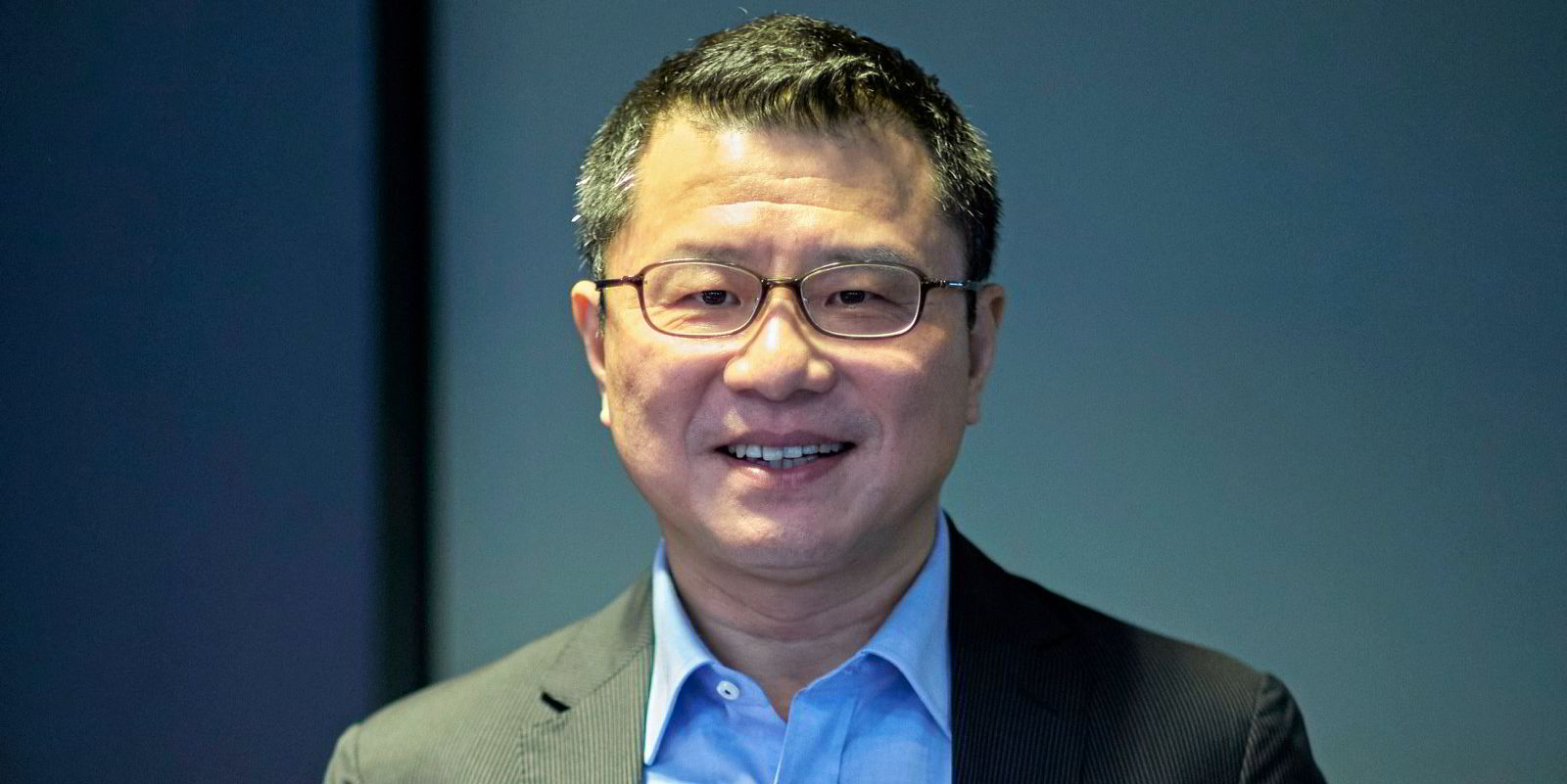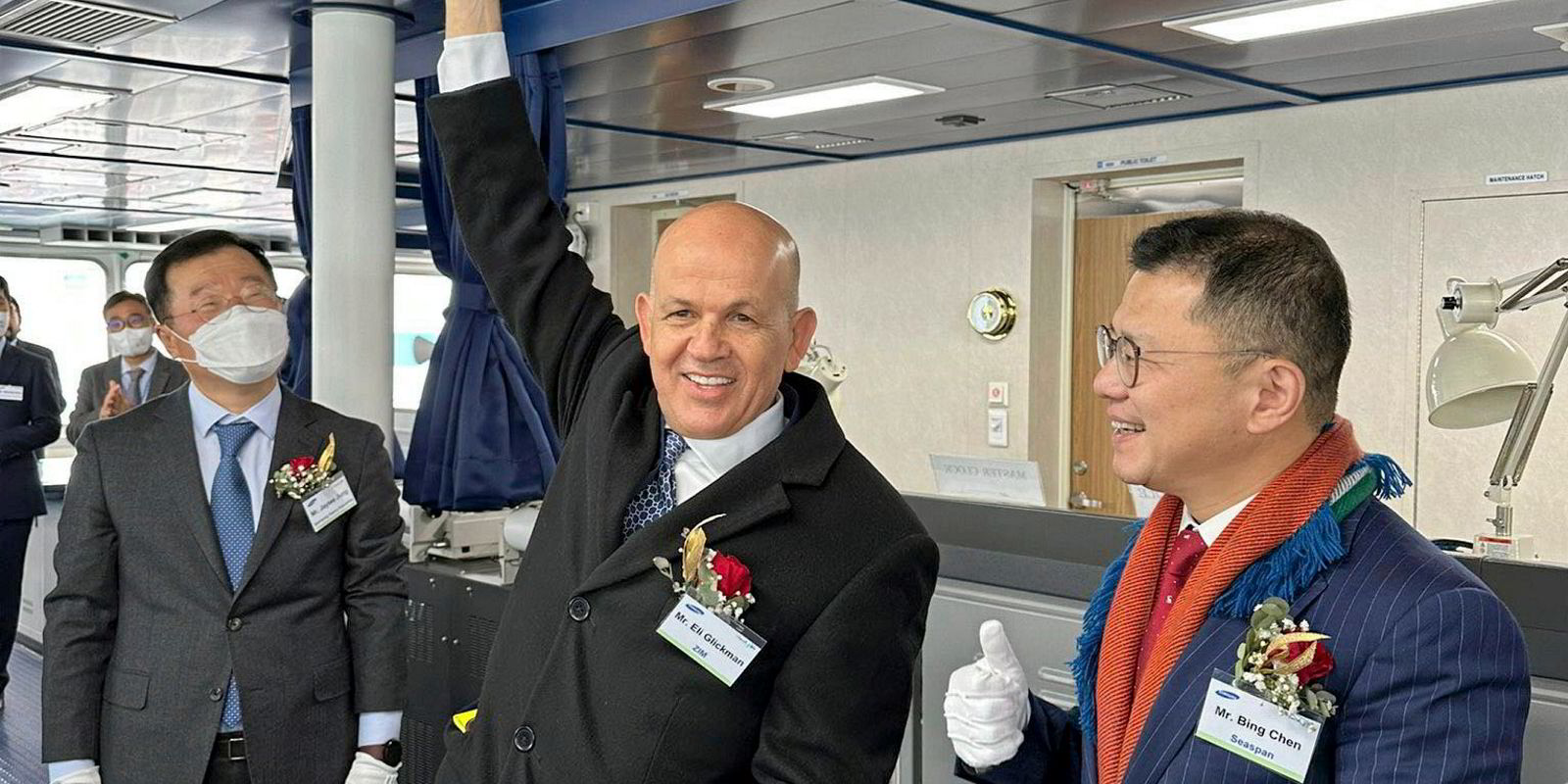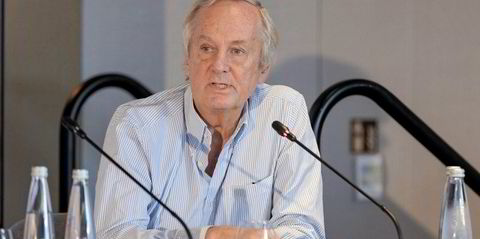Canada’s giant boxship tonnage provider Seaspan has entered a new market in partnership with South Korean operator Hyundai Glovis.
TradeWinds reported last month that Hyundai Glovis was poised to order up to 12 of the world’s biggest car carriers at a cost of $1.84bn.
Seaspan has now confirmed that an order for these 10,800-ceu LNG dual-fuel vessels has been placed at CSSC’s Shanghai Waigaoqiao Shipbuilding in China.
The ships will be ammonia and methanol-ready pure car/truck carriers.
The company did not give a specific number of vessels, but TradeWinds cited market sources as saying two shipyards had been in contention, and the plan is to build six each.
Seaspan said it had negotiated the purchase using its proven record from its huge 70-unit boxship newbuilding programme.
It said Hyundai Glovis can leverage Seaspan’s “proven competencies of consistent operational excellence, innovative customer partnership and solid financial strength”.
Seaspan will own the ships, with long-term charters back to the operator, which is the logistics and shipping division of Hyundai Motor Group.
The largest PCTC newbuildings currently on order are of 9,350 teu, which were commissioned by Wallenius Wilhelmsen in late October from China Merchants Jinling Shipyard.
The Oslo-listed ro-ro shipping and vehicle logistics company booked four vessels and holds options for an additional eight units.
Earlier talks for Cosco ships
In August, Seaspan was reported to be eyeing a deal for three car carrier newbuildings.
It was said at this point to be working with an unidentified Chinese joint venture partner, and was at an advanced stage of discussions with Shanghai Waigaoqiao.
These ships were said to be tied to long-term charter contracts from Cosco Shipping Specialised Carriers, a unit of state-owned enterprise group Cosco.
“This deal signifies our customers’ trust and value of Seaspan’s commitment and capability executing alternative fuel initiatives,” said Seaspan chief executive Bing Chen.
“By incorporating our extensive experience in dual-fuel LNG containerships, while working proactively with all stakeholders during this decarbonisation journey, Seaspan is uniquely poised to contribute to the standards and progress of sustainable shipping.”
Chief commercial officer Kun Li said: “As jurisdictions seek to transition away from conventional fuelled vehicles to electric vehicles, we see this as an opportunity to not only meet the current demand for sustainable shipping solutions but also support the global initiative for cleaner transportation alternatives.”





